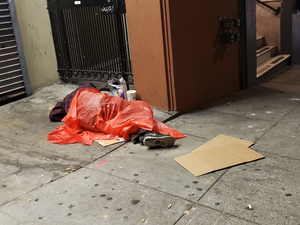Saving Lives Over Punishment: California's Bold Move to Protect College Students During Overdose Emergencies
In a groundbreaking move that prioritizes student safety, California Governor Gavin Newsom has signed a critical piece of legislation that could potentially save lives on college campuses. The Campus Overdose Prevention Act, authored by Assemblymember Matt Haney, aims to remove the paralyzing fear of academic punishment that often prevents students from seeking immediate medical help during drug or alcohol overdoses.
Starting July 1, 2026, college students in California will be granted limited immunity from suspension or expulsion if they seek emergency medical treatment for an overdose. The law recognizes the complex challenges surrounding substance abuse and mental health among young people, particularly in an era where fentanyl-contaminated drugs have dramatically increased overdose risks.
To qualify for this protection, students must complete a rehabilitation or educational program, such as counseling or drug education, after receiving emergency medical treatment. This approach emphasizes support and recovery over punitive measures, acknowledging that students struggling with substance abuse need guidance and resources, not additional barriers.
Haney’s legislation arrives at a critical moment. Overdoses have become the leading cause of death for Americans under 30, highlighting the urgent need for compassionate, life-saving policies. By removing the fear of academic consequences, the law encourages students to make the right choice in emergency situations – calling for help and potentially saving a life.
“When a student overdoses, their life should be the only concern , not the threat of losing their education,” Haney emphasized, capturing the law’s fundamental humanitarian principle. The bipartisan support for Assembly Bill 602 signals a growing recognition that punitive approaches to substance abuse are often counterproductive.
This law represents a significant step towards creating safer, more supportive campus environments that prioritize student health and well-being over administrative punishment. It sends a powerful message that in moments of crisis, community support and human life take precedence.
AUTHOR: cgp
SOURCE: Local News Matters





















































